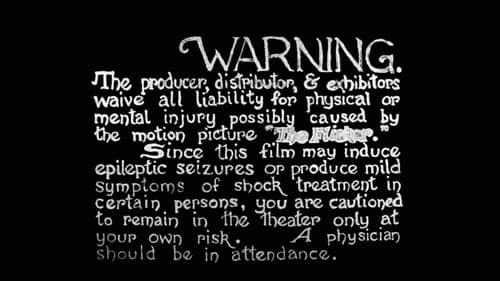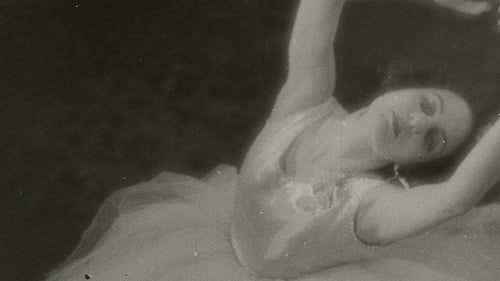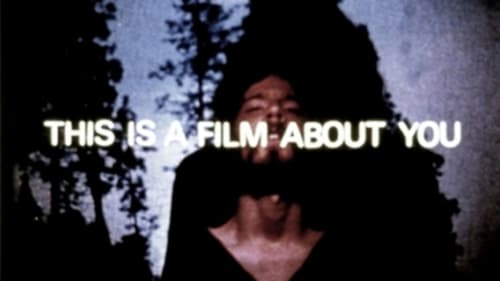San Francisco (1968)
ジャンル :
上映時間 : 15分
演出 : Anthony Stern
シノプシス
One of the earliest music videos, the film shows various pictures of San Francisco in the psychedelic era, with rapid cuts and freeze-frames, and Pink Floyd's music.

This classic short film depicts the Klondike gold rush at its peak, when would-be prospectors struggled through harsh conditions to reach the fabled gold fields over 3000 km north of civilization. Using a collection of still photographs, the film juxtaposes the Dawson City at the height of the gold rush with its bustling taverns and dance halls with the more tranquil Dawson City of the present.

Although best known for his photography, Steven Arnold also wrote, designed, and directed several groundbreaking visionary films, The Liberation of Mannique Mechanique being the first. Stuart Comer of the Tate Modern (London) said of Mannique: “a macabre, decadent work presenting mannequins and models that travel through strange universes toward possible self-discovery.” Brooklyn-based artist and writer Kate Wadkins in a recent online article observed: “Arnold’s films are dream-like visions of androgynous beings. Their narratives are modern-day fairy tales and reveries about gender — all through the lens of an acid trip.”

Shot in 1959, Scotch Tape is Jack Smith's first film -- a joyous, three-minute romp, in color, using Peter Duchin's rhumba "Carinhoso" for its soundtrack. Three young men merrily bop through the wreckage of razed buildings at the site of what would become Lincoln Center. Apparently, Scotch Tape was never edited and, instead, was cut in the camera by Smith, combining long shots and close-ups while filming mostly from overhead. The title comes from a small strip of scotch tape that was accidentally stuck on the camera and so is visible in the lower-right corner of the frame throughout the film.

When you think of Latin percussion, think of Francisco Aguabella. Perhaps the finest Afro-Cuban master percussionist still living, he has become synonymous with his instrument — one of the highest compliments a musician can receive. Indeed, what Carlos Santana is to the guitar, Aguabella is to the conga drum.

Filmed at the Alhambra in Spain in just one day, according to Marie Menken. Arabesque for Kenneth Anger concentrates on visual details found in Moorish architecture and in ancient Spanish tile. The date 1961 refers to the addition of Teiji Ito's soundtrack and its subsequent completion, but the film was likely shot in 1960 or earlier. - David Lewis

La marche des machines is a thundering, thumping symphony of turbines, belts, flanges, wheels and sparks.

A film consisting of alternating black and white frames.

I evoke a dancing woman. A woman? No. A bouncing line with harmonious rhythm. I evoke a luminous projection on veils ! Precise matter! No. Fluid rhythms. Why should one disregard, on screen, the pleasure that movement brings us in the theatre? Harmony of lines. Harmony of light. Lines, surfaces, volumes evolving directly, without the artifice of evocation, in the logic of its forms, dispossessed of any overly human sense, allowing an elevation towards the abstract, thus giving more space to sensations and to dreams : integral cinema. —Germaine Dulac

Landow rejects the dream imagery of the historical trance film for the self-referential present, using macrobiotics, the language of advertising, and a speed-reading test on the definition of hokum. The alienated filmmaker appears, running uphill to distance himself from the lyrical cinema, but remember, "This is a film about you, not about its maker."

In his first film work, Kubelka evokes episodes of flirtation, courtship, and break-ups, played out against a series of non-corresponding audio excerpts.

A soundless mix of story fragments and images. Initially, images of death, a man with a guitar, a soirée. Some images are surreal: an older woman eats a leaf; a headless man pours a cocktail into his body.

Short film of 7 sections with each one using a different experimental film technique.

"A film portrait cut to the tune of Conway Twitty's version of 'Mona Lisa.' Filmed in part at a 1964 show of Conner's artwork in San Francisco, the film is also a witty statement about forces that take the life out of art. Vivian Kurz, the subject of the film, is entombed in a glass display case." - Judd Chesler Award: Gold Medal Award, Sesta Biennale D'Arte Republica Di San Marino. Da Vinci thought he caught her smiling.

A darkish journey down memory lane, to visit some news events, folkways and thought patterns associated with the late forties and early fifties. The film is also concerned with such perceptual phenomena as color-space, "false tones" caused by varying black-white alternations of simultaneously seen rhythms set up by multiple repetitive actions, and the use of image outlines as "containers" for other imagery. Sort of a working notebook, which is continued in EASYOUT and DOWN WIND.

Little Stabs at Happiness is a collection of silent shorts Jacobs shot from the period of 1959-1963. Jaunty tunes (and a somber reflection) accompany the footage.

Jean Painlevé short film examining population explosion and decline.

A documentary of an avant-garde theatre performance, presents an orgiastic rite of sex, degradation, and bloody sacrifice, performed by Zero-Jigen.

Explores the themes of trance and dance in the rituals and religion of Bali. The famous Kris Dance is performed.

Sadomasochistic images of self-mutilation.










